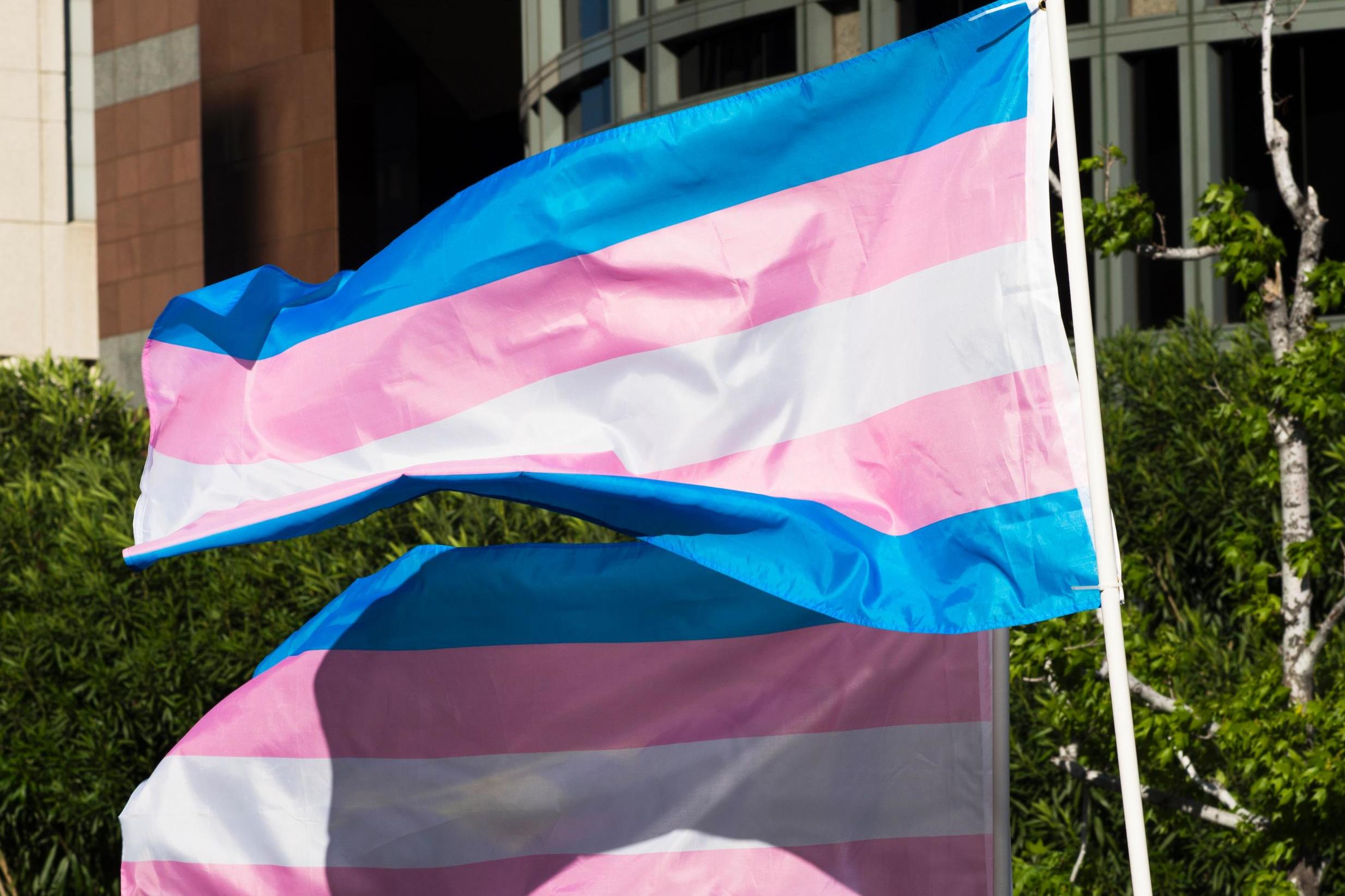Just like so many other forms of prejudice, transphobia is rooted in dangerous capitalist ideals
The refusal to share space or ‘earned’ privilege is not only the selfish economic core of neoliberal ideology, it is at the heart of the anti-trans lobby


One of the most extraordinary things about capitalism is its inability to conceive of a world without it. Capitalism has been in crisis for some time, and whenever it is the global right can muster only one solution: more capitalism!
When Margaret Thatcher’s free market “revolution” reached its logical conclusion in the 2008 recession, fuelled as it was by unbounded financial deregulation, what was the remedy for the banks that screwed us? To reward them, of course.
Fast-forward to now, and neoliberalism feels on the brink of implosion (or has it died already?). Fantasies about eternal economic expansion have been debunked with the sobering fact that our planet is quite literally burning because of it; the Tories celebrate the UK’s “prosperous” position as the fifth largest economy (while ignoring that it’s also one of the most unequal, with 14 million people living in poverty according to the UN); and capitalism’s false promise that we’ll all be private owners should we work hard enough (or have the gift of circumstance, or choose to willingly exploit workers), is coupled with the West’s rapid intolerance of anybody else who might hope for a slice of it.
It’s no doubt that the current wave of far-right populism across Europe and America is a direct consequence of capitalism in meltdown – it’s a terrifying moment, but a symptom of a pernicious form of neoliberalism breathing its final, desperate gasps.
While right-wing politics rears its ferocious head in a refusal to accept that capitalism is not working, the same trend is mirrored in an emboldened social conservatism – a society revealing itself as truly diverse is being combated by a conservative right who cannot accept that their mythologised social order is a pile of hateful bulls***.
And herein lies the backdrop to the devastating assault on transgender rights in the UK right now. For context, according to the BBC, there has been an 81 per cent rise in transphobic hate crimes this year. The abuse trans people are faced with online is nothing short of inhumane.
The growing visibility of transgender identities has been countered by a surge of transphobic commentators across mainstream media. Their arguments range from the nonsensical to the outrageously offensive, more often than not arguing that gender is entirely biologically determined – “if you don’t have a vagina, you have no right to be a woman,” or so the argument goes. The belief that all womanhood is centred around the womb not only regresses us from the complexity of gender into stark binary categorisation but feels aligned with some key tenants of capitalist thinking. For it is predicated on a question of private ownership: “Who has the right to own womanhood?”
I have read the argument that trans access to women’s services is an act of thievery, in effect taking something that cisgender women “own”. Rather than construe women’s services as a right to be democratically distributed between cisgender and trans women – for both are women and subject to patriarchal violence (trans women more so) – what we see is a power play, eerily mirroring right-wing capitalist rhetoric. This refusal to share space or “earned” privilege is not only the selfish economic core of neoliberal ideology, it is at the heart of the anti-trans lobby.
We see this in last week’s arrival of the LGB-alliance, a group set up by a barrister who terrifyingly threatens that “gender extremism has met its match” in her movement which is fighting to extricate trans people from the LGBT movement. The argument is that trans people – who, let us not forget, have been at the forefront of the emancipation of LGTBQIA+ the world over – are consuming the resources of cisgender lesbian, gay, and bisexual people. It is, in effect, an act of border control on identity: “If you get your rights, will we be less well off?!” The answer is, of course: “We barely have any rights (but still fought for you to get yours).”
This capitalism-on-crack mentality partly explains the co-option of gay votes by the far right – most notably in 2017, when a third of gay married (mostly-white) men in Paris voted for Marine Le Pen in France’s presidential election, persuaded as they were that Islam was coming to ransack their civil rights.

It is thus no surprise that many transphobic “feminists” are politically aligned with the far right. One anti-trans campaigner happily spoke on a podcast with neo-Nazi Richard Spencer (a man who has called for a “white ethnostate”), all to argue that women’s rights should be protected from trans people.
The core objective of feminism to dismantle all forms of oppression is always abandoned by anti-trans campaigners. This struggle has played out in feminist circles over and over, most notably among white feminists who have refused to acknowledge intersectionality and the incorporation of racial justice in the fight for women’s rights.
Society – humanity, really – is at a turning point. Some stay deludedly wedded to capitalist systems of thought, with all the division and heartbreak we know will ensue. But many are fighting for a truly democratic alternative. If we opt for the latter, there’s hope that social equality won’t also be dictated by those whose main aspiration is an illusory sense of power.
Amrou Al-Kadhi is a writer, performer and filmmaker, and author of ‘Unicorn: The Memoir of a Muslim Drag Queen’
Join our commenting forum
Join thought-provoking conversations, follow other Independent readers and see their replies
Comments
Bookmark popover
Removed from bookmarks